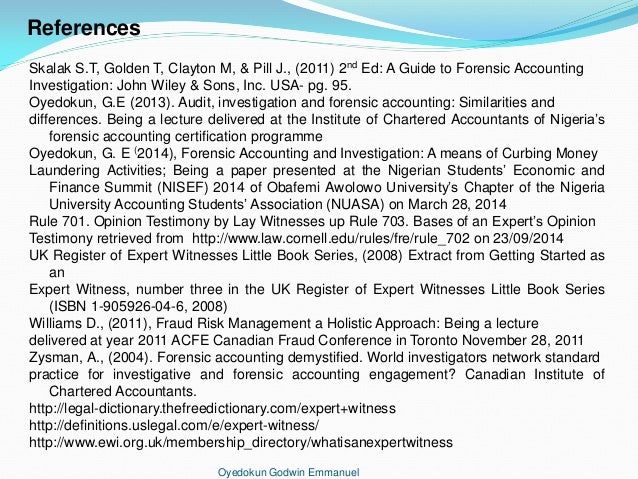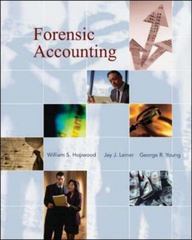Fraud Examination 2nd Edition
Solution Manual for Forensic Accounting and Fraud Examination 2nd Edition William S. Hopwood, Jay J. Leiner, George R. Test bank for Forensic Accounting and Fraud Examination 2nd edition by William S. Table of Contents. PART ONE Introduction to Forensic.
Description Test Bank Forensic Accounting Fraud Examination, 2nd Edition: William Hopwood Chapter 01 Introduction To Forensic Accounting And Fraud Examination 1. Forensic accounting is defined as: a. The practice of applying defined financial ratios to investigate a company’s financial health.
The use of law enforcement to subpoena financial records to determine unlawful actions. The application of investigative and analytical skills for the purpose of resolving financial issues in a manner that meets standards required by courts of law.
The investigatory arm of the securities and exchange commission. If your actions are the result of misleading, intentional actions or inaction (including misleading statements and the omission of relevant information) to gain an advantage, then you have committed: a. Which of the following does a forensic accountant investigate? Purchases of businesses.
Valuation of divorce assets. Calculation of lost profits. All of the above. Which of the following two are types of auditors? External and internal b.

Internal and forensic c. Forensic and international d. External and forensic 5. Forensic accounting can be broken into how many categories? Mega Database 2011 here. Two: investigative and litigation.

Two: internal and external. Three: investigative, external, preventative. Three: internal, litigation, certified. What is one of the primary differences between a financial statement auditor and a forensic accountant? Financial statement auditors are likely to follow leads suggested by immaterial items whereas forensic accountants often must restrict their efforts to searching for material misstatements. Forensic accountants are likely to follow leads suggested by immaterial items whereas financial statement auditors often must restrict their efforts to searching for material misstatements.
Forensic accountants must focus on specific legal areas that produce fraud charges under the courts of law whereas financial statement auditors focus their attention on the generally accepted accounting principles. Forensic accountants are likely to ask individuals to fix discrepancies found in financial statements whereas financial statement auditors will fail a corporations financial statement certification, therefore having repercussions with the sec.
Which of the following is not a skill needed by a forensic accountant? Auditing skills. Information technology. Which of the following events have made the forensic accounting industry more popular recently? Corporate scandals. Sarbanes-oxley act of 2002.